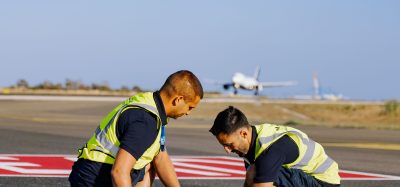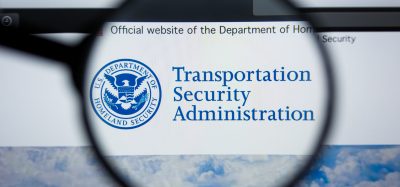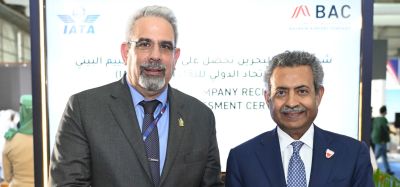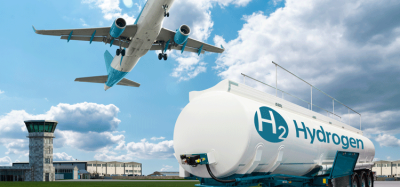IATA calls on governments to establish global vaccination and testing standards
- Like
- Digg
- Del
- Tumblr
- VKontakte
- Buffer
- Love This
- Odnoklassniki
- Meneame
- Blogger
- Amazon
- Yahoo Mail
- Gmail
- AOL
- Newsvine
- HackerNews
- Evernote
- MySpace
- Mail.ru
- Viadeo
- Line
- Comments
- Yummly
- SMS
- Viber
- Telegram
- Subscribe
- Skype
- Facebook Messenger
- Kakao
- LiveJournal
- Yammer
- Edgar
- Fintel
- Mix
- Instapaper
- Copy Link
Posted: 1 February 2021 | International Airport Review | No comments yet
By accelerating the establishment of vaccination and testing certifications, IATA has stressed that governments can better support the re-establishment of global air connectivity.
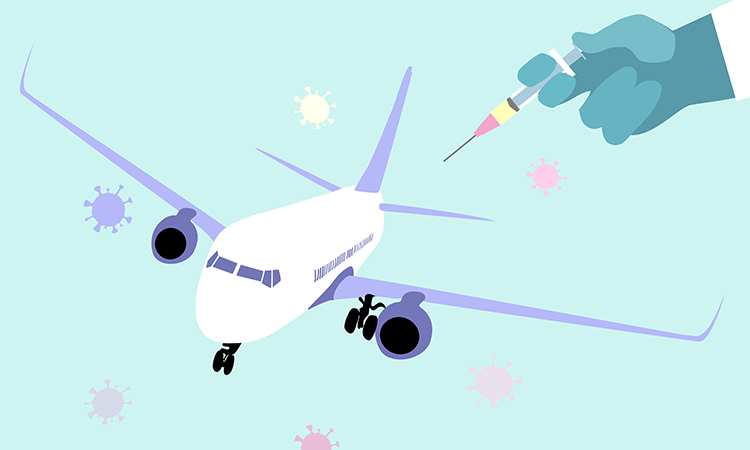

The International Air Transport Association (IATA) has called on governments to partner with the air transport industry to devise plans to safely re-link people, business and economies when the COVID-19 pandemic situation permits. A priority for this critical cooperation is the acceleration of the establishment of vaccination and testing certification.
“We can see the light at the end of the tunnel as vaccination programmes roll out. Turning this vision into a safe and orderly re-start will require careful planning and coordination by governments and industry. This will be challenging, as the priority for the weeks and months ahead will be containing the spread of new variants. But, even as the crisis deepens, it is important to prepare the way for a resumption of flights when the epidemiological situation permits. Understanding government policy benchmarks and agreeing the global standards needed to support a return to normality in travel will ensure that air transport is well-prepared and does not become a meaningful vector for reimportation. Airlines are ready to support governments in this task,” said Alexandre de Juniac, IATA’s Director General and CEO.
Principles
When governments do turn their attention to re-establishing global air connectivity, IATA is ready to partner with them to facilitate a globally consistent, efficient and effective approach. Already, IATA has seen some governments evolving principles in their testing/vaccination programmes that could form the foundation for global harmonisation. These include:
Vaccinations
Most governments are pursuing a vaccination strategy that seeks to protect their health care workers and most vulnerable populations first. IATA supports re-opening borders to travel when this has been achieved, as the greatest risks will have been mitigated.
Vaccinated individuals
The Greek government has proposed that vaccinated individuals should be immediately exempted from travel restrictions, including quarantine. IATA supports the moves by governments – including Poland, Latvia, Lebanon and the Seychelles – to implement this exemption.
Testing
Many governments are implementing testing regimes to facilitate travel, which IATA supports. Germany and the U.S., for example, are taking advantage of the rapid improvement in testing technologies to accept PCR and antigen testing to safely manage the risks of travel. While rapid antigen tests are preferred for their speed and cost advantages, it is clear that PCR testing will play a role, as many governments are requiring tests within a 48 to 72-hour window prior to travel.
Crew
The International Civil Aviation Organization (ICAO) Council’s Aviation Recovery Task Force (CART) guidance recommends that crew be exempted from testing processes and restrictions that are designed for passengers. IATA supports crew health management protocols which include, for example, regular testing and health checks at home bases, along with strict guidelines limiting interaction with the local community during crew layovers. This enables airlines to manage the risks of COVID-19 while maintaining operational viability.
Multi-layered bio-safety measures
The ICAO recommendations for multi-layered bio-safety measures (including mask wearing) are being globally implemented. IATA supports such measures remaining fully in place for all travellers until such time as the epidemiological situation allows for relaxation.
“There are plenty of moving parts in the equation. The number of people vaccinated, and the availability of testing, are key among them. Airlines have adapted their operations in order to maintain cargo operations and some passenger services, while complying with the numerous and uncoordinated restrictions imposed. Building on this experience, they can help governments with their preparations for eventually safely re-establishing global connectivity for their people, businesses and economies,” said de Juniac.
Practicalities: Global standards are essential
Underlying all scenarios for the re-establishment of air connectivity is the development of global standards so that the requirements of one country can be followed by travellers originating in other jurisdictions. Key global standards that are being developed include:
Vaccination certificates
The World Health Organization (WHO) is leading efforts to build the standards needed to digitally record vaccination information that will be critical to re-establishing international travel. The Smart Vaccination Certificate will be the digital successor to the long-established “yellow book” used to manage vaccinations such as yellow fever.
Global framework for testing
The Organisation for Economic Co-operation and Development (OECD) is laying the foundation for a global framework to help governments trust testing data based on the mutual recognition of testing results. The urgency of such a framework was demonstrated by the recent suspension of flights between the United Arab Emirates (UAE) and Denmark over concerns about the UAE’s testing regime. A trusted framework will ensure that travellers are not caught in the middle when governments do not recognise each other’s testing regimes. Standardising the appropriate testing certificates is also essential.
Digital Travel Credential (DTC)
ICAO has published standards to create a DTC from ePassports. Along with enabling contactless travel as recommended by the ICAO-CART guidelines, the credentials are an essential component in digitally matching travellers to their vaccination and testing certificates. The standard exists and the challenge now is implementation.
“As we have seen, unilateral government decisions are very effective in shutting down global mobility. Re-establishing the freedom to travel, however, can only be done with cooperation. Governments are already seeing how challenging that will be without global standards for vaccines or tests. This puts a spotlight on the urgency of the essential work being done by WHO, OECD and ICAO. IATA is participating in these initiatives and stands ready to help governments with implementation,” said de Juniac.
Building the future with IATA travel pass
IATA is building the information infrastructure to safely re-start travel with the IATA Travel Pass. The IATA Travel Pass is an industry solution that will help governments, airlines and individual travellers to manage vaccine or testing requirements with accurate information, secure identification and verified data. As an industry-supported solution, it will be cost effective, protect privacy and respect global standards.
The first pilot programme to test the app in a real travel situation commenced with Singapore Airlines in December 2020. A growing list of airlines are confirming their intention to use IATA Travel Pass, including IAG, Emirates, Etihad Airways and Qatar Airways.
“Based on our deep experience of driving transformational change in global air transport, we believe that the IATA Travel Pass will offer the best support to governments in managing vaccination and testing data to safely facilitate travel. But the success of any of the solutions being developed will depend on governments working with and trusting each other. Air transport built its reputation on safety by cooperating with governments to ensure universal implementation of transparent global standards. That’s a compelling model for how industry and governments can work together to re-connect the world,” said de Juniac.
Related topics
COVID-19, Passenger experience and seamless travel, Regulation and Legislation, Safety
Related organisations
International Air Transport Association (IATA), International Civil Aviation Organization (ICAO), Organisation for Economic Co-operation and Development (OECD), World Health Organization (WHO)




